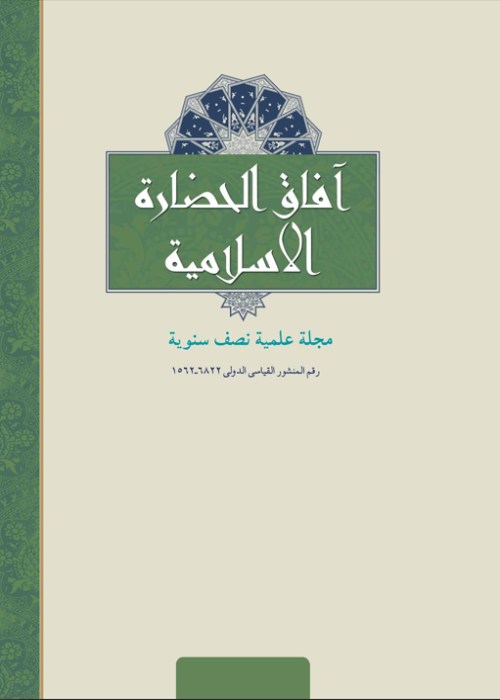Review and critique of the theory of evolution in the Tafsir Al- Mizan
Author(s):
Article Type:
Research/Original Article (دارای رتبه معتبر)
Abstract:
Allameh Tabatabai, believing in the incompatibility of monotheism and evolution, believes that the evolutionary theory of creation is rejected from the point of view of science and the view of the Holy Quran according to the appearance of the verses indicates proven creation, so there is no conflict between science and religion in this regard. Allameh's strategy in focusing on monotheism and religious anthropology is only concerned with resolving the content conflict, and she has not offered a solution to the conflict between Darwinism and the religious vision of the universe, nature, and ethics. Her method does not have the full ability to resolve the apparent conflict between science and religion, and is successful only if the theory of evolution is really invalidated. According to the author, the theory of evolution neither violates the teleological interpretation of the universe nor the order of the universe, even if it removes teleological interpretations from biology. There is no contradiction in a philosophy of existence. Metaphysics is throughout physics both in terms of activity and in terms of purpose. With the sum of monotheism and evolution in the view of monotheistic evolution it can be shown that the acceptance of the theory of evolution is not necessary to deny God and His activity in the world and God as the creator and mastermind of the universe, could implement his plan through the process of evolution. The method of this research is descriptive-analytical. The result of this research can be summarized as follows: The most important conflict between the theory of evolution and the problem of world order is answered according to the principles of Allama and Muslim philosophers. Regarding the conflict between the theory of evolution and the argument of the order and wisdom of creation, it should be said that philosophical Darwinism, which denies prudence and wisdom in creation, is based on several fallacies: What philosophical Darwinism denies as order is a simplistic picture of the system of creation and God's relationship to the world of creation. Order in the minds of Western theologians is a human concept and is based on the fallacy of comparison with human action. In this conception, the regulator regulates orderly phenomena in nature, such as man, in relation to his contemplative actions, and in the expression of philosophers by compound forgery. This notion is fundamentally wrong from the point of view of Muslim sages such as Allameh Tabatabai, and Darwinism illustrates the destruction of this notion, but it should not be assumed that order in creation is nothing but what theologians of the West have interpreted. God's activity in nature is not directly related to natural causes. In regulating nature through the mode of existence of nature, the moderator has created them in order, not that she created them and then regulated them. Of course, orderly creation in the system is done for its own cause and effect with all natural resources. Therefore, it is possible to abstract from the gradual creation of nature, prudence and wisdom, and the theory of evolution is not a rival to any interpretation of the order of creation, but only conflicts with the idea of order, which considers the order of creation as an industrial order like human actions. Proponents of the theory of evolution have argued that the expression of an actual causal interpretation of creation does not require an ultimate causality. The theory of evolution denying the argument of order is based on the fallacy of confusing actual cause and ultimate cause. The question of ultimate causality and actual causality is possible in two ways: philosophical interpretation and scientific interpretation. These two interpretations are parallel to each other, and a conflict between them is basically impossible. Darwinism, if it can, is the scientific interpretation of creation, but the purposeful interpretation of creation (according to Muslim scholars) is not a purely scientific interpretation, because it does not express the industrial order and prove the steward, but expresses an order that is naturally forged. Of course, the theory of evolution is in conflict with the conventional interpretation of Western theologians, because both interpretations are scientific in structure and two scientific interpretations belong to the same subject. The conclusion is that the theory of evolution is a rival to the theologian who proves God's order as the steward through argument, because he considered the natural desire of living things and genetic mutations to be the steward of God and the order as the product of disorder. But if this theory proves God as an indirect controller who, through the natural desire of living things, created the order of the universe and guided order in the world, then the theory of evolution cannot compete with it.
Keywords:
Language:
Arabic
Published:
Journal of Afaqh Al-Hadarah Al-slamiyyah, Volume:24 Issue: 2, 2022
Pages:
313 to 340
https://magiran.com/p2384498
دانلود و مطالعه متن این مقاله با یکی از روشهای زیر امکان پذیر است:
اشتراک شخصی
با عضویت و پرداخت آنلاین حق اشتراک یکساله به مبلغ 1,390,000ريال میتوانید 70 عنوان مطلب دانلود کنید!
اشتراک سازمانی
به کتابخانه دانشگاه یا محل کار خود پیشنهاد کنید تا اشتراک سازمانی این پایگاه را برای دسترسی نامحدود همه کاربران به متن مطالب تهیه نمایند!
توجه!
- حق عضویت دریافتی صرف حمایت از نشریات عضو و نگهداری، تکمیل و توسعه مگیران میشود.
- پرداخت حق اشتراک و دانلود مقالات اجازه بازنشر آن در سایر رسانههای چاپی و دیجیتال را به کاربر نمیدهد.
In order to view content subscription is required
Personal subscription
Subscribe magiran.com for 70 € euros via PayPal and download 70 articles during a year.
Organization subscription
Please contact us to subscribe your university or library for unlimited access!


